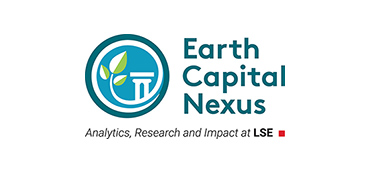LSE launches Earth Capital Nexus to tackle finance’s multi-trillion dollar blind spot-on nature

The London School of Economics and Political Science (LSE) has this week launched Earth Capital Nexus (EarthCap), a global initiative to make nature visible in the financial system and unlock trillions in sustainable investment into restoration and recovery.
Hosted by the Grantham Research Institute on Climate Change and the Environment and the new Global School of Sustainability, both chaired by Professor Lord Nicholas Stern, and led by Professor Nicola Ranger, EarthCap brings together world-leading research, technical expertise and convening power to address a critical weakness in the global economy: the blind spot that leaves natural capital and resilience invisible in economic and financial decision-making.
EarthCap’s mission is to radically scale up high-quality, accessible finance and policy innovation for a resilient, nature-positive and prosperous future.
Why it matters: Growth, stability and prosperity depend on natural systems – fertile land, water, forests, biodiversity and a stable climate. Yet these foundations are being eroded at unprecedented rates. Despite decades of commitments, global finance flows remain deeply insufficient to address nature loss and adaptation and most fiscal frameworks and investment diagnostics ignore natural capital. As a result, trillions continue to flow into damaging activities, while positive investments remain underfunded. As the Dasgupta Review on the economics of biodiversity warned, failing to treat nature as an asset is an ‘own goal’ for the global economy.
What EarthCap will do: EarthCap will help close this gap by creating the analytics, partnerships and policy frameworks needed to make invisible risks and assets visible and investable. It works locally, nationally and globally, with a focus on working in partnership with emerging markets and developing economies (EMDEs) – those countries richest in natural capital.
Key priorities include:
- Working with financial institutions, regulators and Finance Ministries to integrate natural capital and risk into policies, financing and decision-making approaches.
- Through a Finance Lab, co-developing new solutions with banks, insurers and investors, from sustainability-linked instruments to nature-aware credit ratings.
- Advancing investment in ‘systemically important natural systems’ – those ‘too big to fail’ – analysing the risks and opportunities of forests, mangroves and river basins, and developing innovative fiscal and financing options to preserve and restore them.
- Sustainable and resilient global value chains – identifying ‘win–wins’ where sustainable practices deliver both commercial returns and inclusive development.
The initiative comes as seven of nine planetary boundaries are breached, biodiversity is in rapid decline, climate risks are accelerating and sustainable investment flows to EMDEs remain far below need. With the reform of the multilateral development banks and COP30 in Brazil approaching, EarthCap aims to provide the evidence and tools to help governments and investors alike redirect finance from hidden risks to resilient returns.
“The financial system has a blind spot – it overlooks nature and undervalues resilience. That means risks are hidden, natural assets are undervalued, and huge opportunities are being missed. EarthCap will help change that by embedding nature into the diagnostics that drive fiscal policy, debt models and investment decisions,” said Professor Nicola Ranger, Executive Director of Earth Capital Nexus, and Professor in Practice for Natural Capital Risk and Finance at LSE.
Read more about Earth Capital Nexus here.

